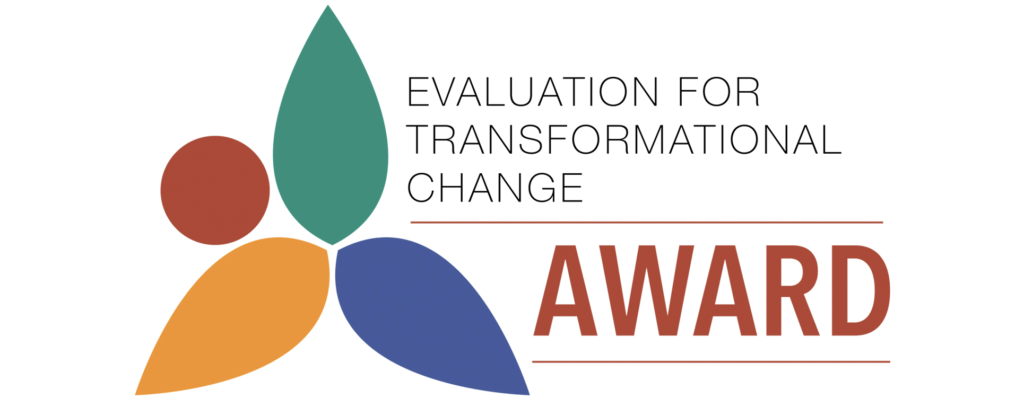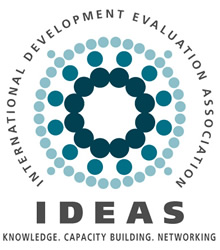IDEAS Thematic Interest Group (ITIG)
Resettlement Evaluation Team (RESEVALT)
Background
The RESEVALT group was established in 2015 at the IDEAS conference in Bangkok. A joint decision in 2018 resulted in that RESEVALT became part of the latest established ITIG on Evaluation in the Contexts of Fragility, Conflict and Violence coordinated by Hur Hassnain. As the two ITIGs have overlapping areas of interests, face similar challenges in the field of evaluation and work with societies under stress the collaboration is mutually beneficial. However, there are also differences between the groups and therefore RESEVALT would retain its own profile, task area and convener. RESEVALT would function as a group within the larger group, but with opportunities for joint projects.
Purpose
The purpose of RESEVALT is to act as a catalyst to promote the advanced use of resettlement evaluation in programs and projects with displacement and resettlement components to design evaluation methods, and enhance theoretical evaluation models for the benefit of displaced people regardless of the reason for displacement. The array of causes is wide and involves climate change, disaster, development projects, infrastructure projects, heritage sites, environmental protection, poverty alleviation and tourism. This ITIG will actively work for the improvement of existing evaluative approaches and customize them for resettlement in order to find new and innovative combinations of “what works” in a true multidisciplinary and multi-practitioner environment with strong emphasis on partnership.
Rationale
Every year millions of people are involuntarily displaced and resettled around the world. The GRID report (2017) points out that new displacements mainly originate from conflict and disaster areas adding to an already alarming high number of IDPs. The World Bank (2018) states that forced displacement reaches historically high levels; estimated to 66 million refugees, IDPs and asylum seekers globally. When it comes to development-induced displacement the number of people is still uncertain, but the most frequently mentioned number is 15 million people a year, which is probably an underestimation. Since the problems with displacement and resettlement are immense, they need to be tackled from an array of disciplines and practitioners and handled as a collaborative participatory enterprise between global, national experts and local knowledge expertise. Topics that need urgent attention include how to evaluate livelihood restoration and socio-economic and cultural sustainability to ensure what the affected people constitute as a “good life” with a long-term perspective in mind. The complexity of resettlement evaluation goes beyond what is known in evaluation as the “tricky triangle”, the relationship between agencies. We need therefore to make use of big data, ICTs, remote monitoring and feedback mechanisms, in combination with meaningful and sensitive qualitative data and the informed participation and negotiation of people involved that capture livelihood strategies and a society´s human dimension. We need to identify and evaluate what constitutes effective and stable institutions and promote inclusion in the decision-making processes. Resettlement evaluation must be a partnership project. There is also a need to work preventively and identify possible risk areas for displacement and resettlement.
Specifics:
- Share knowledge about resettlement through “thick” ethnographic case studies, expert reports and local reports.
- Share knowledge on resettlement evaluation from all perspectives. The failed ones are as valuable as the successful ones.
- Develop conceptual methods and theories specifically designed for resettlement evaluation.
- Identify databases on development-induced displacement.
- Raise awareness, and build capacity on resettlement evaluation among IDEAS members through workshops and training programs.
- Engage with an array of other stakeholders outside of IDEAS for cooperation and sharing of knowledge considering the global experiences of the subject and the urgent need for solutions.
- Propose contributions to the GAs in the field of resettlement evaluation in collaboration with the IDEAS Board.
Proposed Activities 2019
| # | Activities | When | Who | Funding |
| 1 | Develop a work and communication plan | asap | ? | No |
| 2 | Editing and publication of selected papers | End of year | ? | Required |
| 3 | Literature review of relevant concepts | Done | ILA | Required |
| 4 | Create an on-line forum or task-force to exchange information and advocacy. | asap | ? | Required |
| 5 | Identify funding agencies | Done | ILA | No |
| 6 | Develop training workshops on resettlement. | Spring | ILA & Hur | Required |
| 7 | Identify possible customers and teachers. | asap | No | |
| 7 | Review of case studies, reports etc. Create a database. Start-up. | End of year | ? | Required |
| 8 | Locate and gather evaluation reports on resettlement. Create a database, start-up. | End of year | ? | Required |
| 9 | Identify networks, organizations, societies, for collaboration. | asap | ? | Required |
| 10 | Suggest contributions to the GAs in collaboration with the Board. | Done | ILA & Hur | No |
Convener:
Inga-Lill Aronsson


